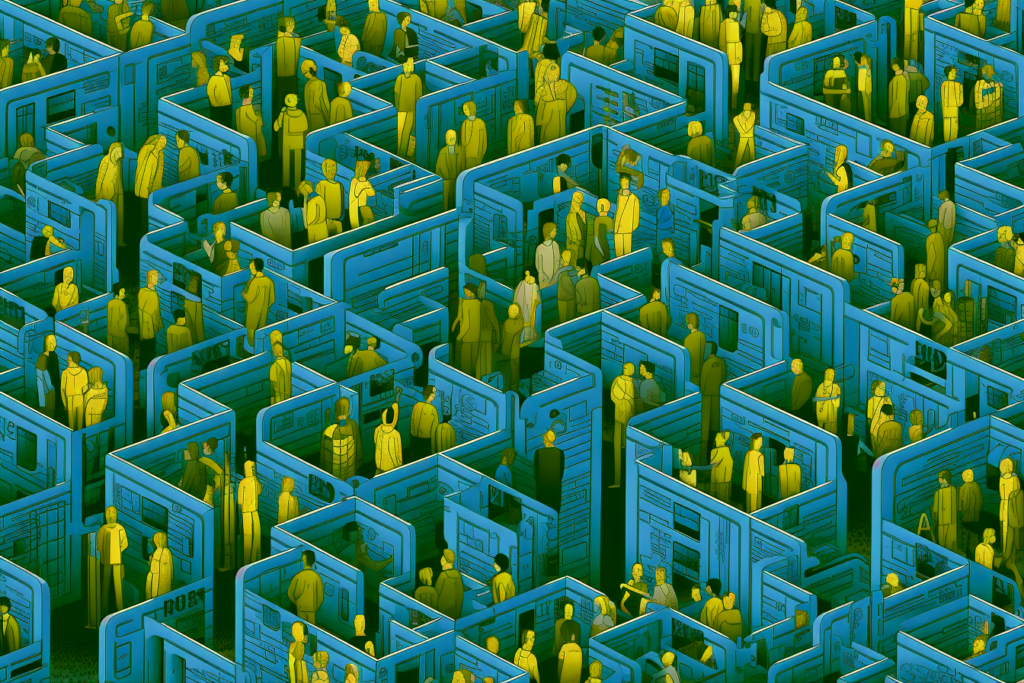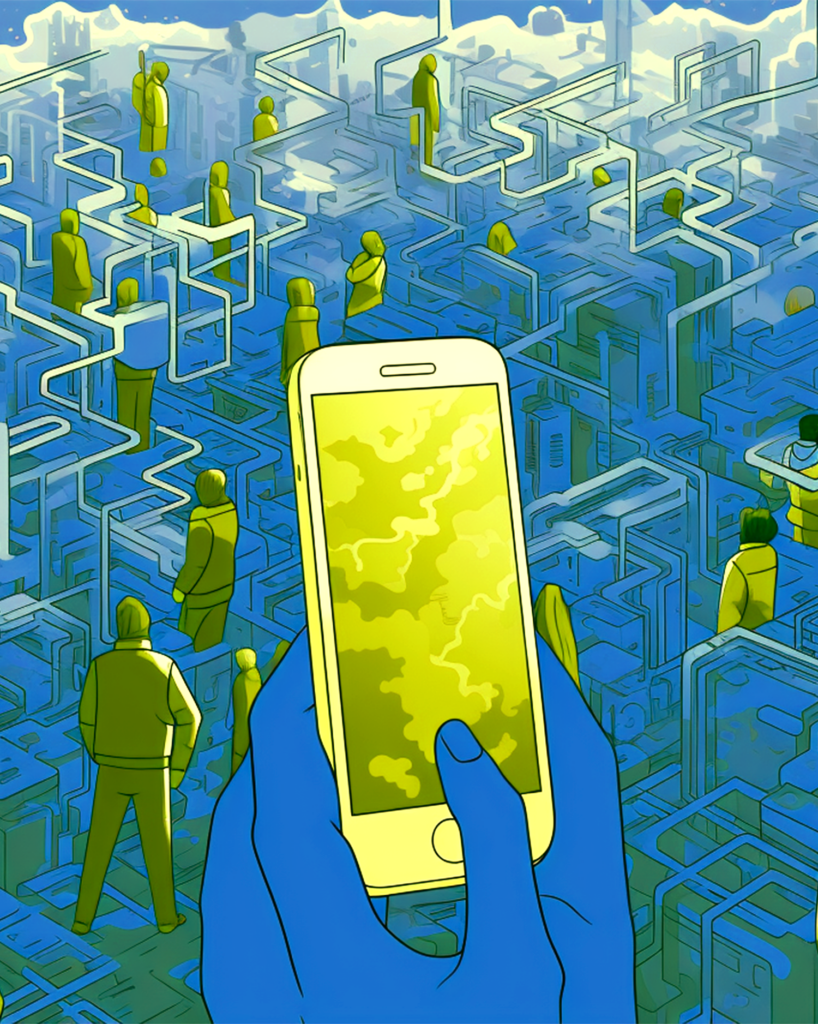Early in the AI era, smart devices are still dumb
With CES 2024 closing out last week, we’re beginning to distill and synthesize the most important and unique perspectives as part of our Intelligently Artificial Issue. CES 2024 might be over, but there’s an emerging narrative that we’re just beginning to weave together.
Our hardware vs. software debate led us to a predictable conclusion in the AI era: To build a moat, you can’t rely on just hardware or just software. Instead, business leaders must figure out how to leverage software-enabled hardware to deploy robust data strategies. Your differentiator is not your hardware or your software, but how you are collecting data, extracting utility, and offering insights.
More than just a new TV
We were transfixed by transparent TVs from LG and Samsung, but not because they were the most visually impressive devices to see at the convention. The discussion quickly focused on where such transparent screen tech can best be deployed—retail use cases being more likely than the home.
Quantified health leaps forward
Health was the category with arguably the most promise. We saw devices that suggest more granular diagnostic health data is within reach, pending approvals and clearances from government bodies around the world. While large language models have been trained on text scraped from humanity’s printed word, health care models could soon be trained on data scraped from human bodies. The quantification of our bodies means exponentially more health data, including everyday vitals and patient-led diagnostics, leading to new services, new user experiences, and new business models.
New connected health products from companies like Abbott and Withings, in the home and at the clinic, seem inevitable, collecting far more useful data than current wearables. Although we wondered whether an abundance of health devices and excessive health tracking could lead to new mental health issues, the consensus was that consumer wellness tech could have a profound impact on preventive health care. On the flip side, companies expanded beyond the human body to gimmicks like AI dog collars. We pointed to countless examples of “AI-washing”, wherein companies offer no useful AI capabilities but plenty of marketing material claiming otherwise. Every company wants to be an AI company and we found ourselves frequently weeding out hype from reality.
Every company wants to be an AI company and we found ourselves frequently weeding out hype from reality.

Swapping one buzzword for another
In years past, companies were labeling every product and service as “smart.” Now, companies are prepending, inserting, or appending AI to their brand and product names. Nonsense terms like “bespoke AI” don’t help. We posited on our floor tours that while mentioning AI is currently best for your company valuation, using a term like “smart” is more consumer-friendly and representative of what people want from their technology. It’s only a matter of time before marketers come up with something less ominous than “AI” and as apt as “smart” for brands to promote.
Brands, organizations, and UX
Speaking of brands, ON_Members at our briefing event debated whether AI will turn most brands into commodities and whether brands will lose their importance or become more valuable than ever before. There was a general agreement that employers need to hire more experts who understand the human experience, not more experts who understand AI. We also discussed how the AI age could be an opportunity to bring more of the human condition into the user experience.
The death of the smartphone?
The UX discussion often centered on the latest trend of supplementing or outright replacing the smartphone, and what interface would be required for such a device to be successful. These devices fall into two categories: new gadgets, like Humane’s Ai Pin, and AR/VR.
Rabbit’s R1, a palm-sized smart personal assistant device that doesn’t run any apps but can connect to your existing apps, created a lot of buzz. It’s sobering to remember that plenty of CES products, including the exciting ones, ultimately flop (relatedly, Humane wasn’t at CES but laid off some staff during the same week).

We spotted plenty of products that were solutions in search of a problem. AI and smart labels aside, most devices are still dumb: they’re not anticipating our needs and thus can’t take any useful action.
Even if nothing seemed ready for prime time, the most striking innovation seemed to be around input devices, spanning wrist wearables, smart mirrors, and even AR/VR controllers that tap into our bodies’ electrical signals. We saw that AR/VR still isn’t ready in 2024, even with Apple’s usual attempt to try to steal CES, this time with some Vision Pro news.
VR is powerful, but cumbersome, and doesn’t have any use cases outside of porn, gaming, and maybe exercise. AR is more useful, but the form factor has major trade-offs: poor battery life or few features.
Regardless, it’s clear that someone needs to upend the current touchscreen UX to displace the smartphone.
Most devices are still dumb
In sum, we spotted plenty of products that were solutions in search of a problem. AI and smart labels aside, most devices are still dumb: they’re not anticipating our needs and thus can’t take any useful action.
This brings us back to where we started: The future will not be prompted. While everyone is understandably focused on text prompts, we focused on hints that we could be heading toward a future of ambient data collection and anticipatory interactive technology. If brands can make the move from personalization to anticipation, our behavior will become the prompt for AI.
This is just the beginning of our Intelligently Artificial Issue’s next phase, in which we’ll be presenting unique insights driven by provocations and mapped to our three areas of focus:
- Will AI drive a new UX?
- Will AI reorganize the re-org?
- Will brands matter in the AI era?
Are you interested in being part of the discourse, and contributing to this and future Living Issues? Is there a perspective you think we might be missing? Tell us what you think.
